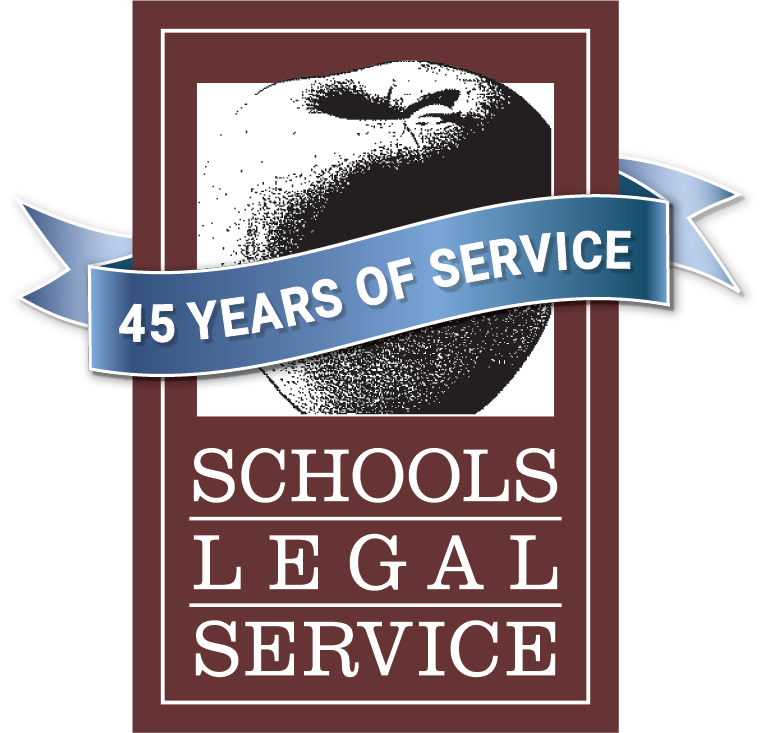Schools Legal Service
An Original Concept Proven Over Time
Schools Legal Service was the first public education law consortium of its kind in California. Formed in 1976 at a time when public education agencies began to realize the need for specialized legal services focusing on their unique circumstances, Schools Legal Service continues to address the changing needs of more than 75 education agency clients, including school and community college districts and county offices of education. The service represents districts among both the largest and smallest in the state.
Schools Legal Service’s 11 attorneys (one of whom is also a collective bargaining specialist) see their work as more than a job or an opportunity to bill hours to clients. Housed in the Kern County Superintendent of Schools’ City Centre building in downtown Bakersfield, the Service’s personnel are literally part of the school community and interact daily with educational specialists in curriculum, special education, transportation, school facilities, human resources, and school district finance and accounting, as well as with representatives of related agencies such as Self-Insured Schools of California and the Fiscal Crisis & Management Assistance Team. The strength of these varied day-to-day relationships within the education community helps us understand our clients’ needs and provides crucial problem-solving resources.
The Service boasts both experienced litigators and transactional attorneys from a variety of backgrounds, including a former deputy county counsel, deputy public defender, private practitioners and former U.S. Marine JAG officers. SLS maintains at least one attorney in each practice area on call each day to take incoming calls on new matters in each practice group, with an attorney on duty on a 24-hour basis in the event of an emergency requiring legal assistance.
Schools Legal Service is operated in a nonprofit format. There are no profits at the end of the year to be divided among partners. Any excess of revenue over expenses is simply reinvested in the program.
The Services We Provide
Schools Legal Service provides the full spectrum of education law and collective bargaining services to its clients.
In today’s complex educational environment, it is necessary to provide specialized services in areas of particular concern to school boards and administrators. The Service’s practice groups provide specialized representation in labor and employment law, special education, school business and construction matters, student matters, and collective bargaining.
Schools Legal Service’s Labor and Employment Practice Group attorneys counsel school administrators in handling complicated employee discipline matters, provide representation and advice in classified and certificated disciplinary proceedings and related writ actions and appeals, non-reelection of probationary employees and layoffs, unfair practice charges and grievances, employee leaves, hiring and evaluation issues, as well as matters before administrative bodies such as the Department of Fair Employment and Housing, the Office of Civil Rights, the Equal Employment Opportunity Commission and the Unemployment Insurance Appeals Board.
Special Education law has literally exploded over the past 15 years. To match the demand, SLS employs three full-time special education attorneys who represent districts in mediations, due process hearings and state complaints, appear at difficult IEPs, and counsel clients on a host of day-to-day issues in special education, including eligibility determination, assessments, manifestation determinations in discipline proceedings, Section 504 issues and other matters.
Prevention and training are a major focus of the organization. A variety of workshops in all practice areas are offered. To see a calendar of upcoming trainings, click here (Events). A variety of publications , forms and updates are posted on the Members Only section of the website. SLS publishes some of the most comprehensive publications in the state on issues such as student discipline and employee leaves. Clients receive periodic updates on legal matters, tailored for superintendents, business officials, MOT personnel, HR professionals, student discipline deans and special education directors and practitioners.
SLS attorneys monitor and participate in the legislative process through monthly meetings of a legislative policy committee chaired by the Sacramento-based Chief Deputy for Governmental Affairs for the Kern County Superintendent of Schools. This process has resulted, for example, in legislation allowing districts with schools on leased property on military bases to access funds from the State school building program, as well as regulatory changes requiring publicly financed child care providers to be fingerprinted before they can receive payment for care.
How Schools Legal Service is Administered
Membership in the joint powers entity affords participation in a network of educational agencies which collaborate in setting priorities for the Service through a governing board made up of superintendents drawn from a diverse mix of districts: urban and rural, large and small, spread over eight counties.
The Kern County Superintendent of Schools serves as the administrative agent for the JPA.
Fees
JPA Members pay a minimum annual retainer fee for legal services based on student enrollment. Collective bargaining services are provided for an additional retainer fee based on district size and number of bargaining units. Each retainer fee brings access to SLS services and materials as well as a block of hours of services at no additional charge. Fees allocated to hours of collective bargaining services rendered and related expenses can generally be claimed as mandated costs.
Services are also provided to non-JPA members on a limited basis in a specific practice area.
Full service includes telephone and office consultations, research, written opinions, visits to districts, attendance at board meetings, and appearances on behalf of the client in administrative and court proceedings at all levels, including arbitrations and unfair practice cases.
